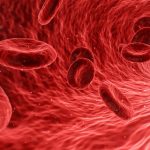Life After A Permanent Pacemaker Or Implantable Cardioverter Defibrillator
There is no questioning the fact that technology has progressed greatly with the passage of time. It has its holds in all walks of life, and the medical field is no exception. There was a time when even the common cold could be life-threatening. However, because of the major strides made in the discipline of medicine, medical practitioners have been able to develop cures that have helped many.
The Pacemaker and the Implantable Cardioverter Defibrillator (ICD) are the results of the great technological advancements that have been made. These help people with heart conditions to live a life of better quality and have a higher life expectancy.
Why Do We Need Permanent Pacemakers And ICDs?
There is a condition of the heart known as Arrhythmia. People who suffer from this condition experience an irregular heartbeat. Their hearts either beat too slow or too fast creating an abnormal rhythm. This is mainly due to the malfunctioning of the electrical system of the heart. There are many kinds of arrhythmias. Where some can be quite bothersome others can become the reason for a heart attack or a stroke.

To treat the irregularities in the pattern of the heartbeat devices such as Pacemakers and ICDs are used. These devices are considerably small in size and are usually planted on the chest, under the skin. They utilize wires that are termed as “leads.” These leads send electrical signals and help fix problems caused by arrhythmia. It is common to be held under observation for a few days after the surgery as it helps doctors assess if the device is functioning perfectly or not.
The Difference Between Pacemakers And ICD.
Although pacemaker and ICD fundamentally have the same function, there is a slight difference in how they operate. The pacemaker sends low energy electrical pulses to help correct the irregular rhythm of the heart. By doing so, it may also help alleviate some symptoms caused by arrhythmia for example: feeling faint or fatigued. It may help someone with this condition to lead a more active life then they would have without the pacemaker.
The ICD on the other hand not only corrects irregular heartbeat but also constantly monitors it. It sends out both high and low-level electrical pulses for that purpose. Typically, this device is used for patients that are at risk of suffering a sudden heart attack. How ICDs deal with sudden heart attacks is very simple. As soon as it senses any irregularities in the heartbeat, it sends out a low-level pulse; however, if that is not effective, then it switches to a high energy pulse to bring things back to normal. This can prove to be vital as in cases of cardiac arrests, immediate first aid is necessary and can save lives.
Getting To Know Your Device
It is important to understand that as soon as you get the implant, the device becomes a part of you. You should care for it as you care for any other part of your body. It is also important to understand that there are certain limitations to the device. One of the key limitations is that a pacemaker or an ICD will not treat your underlying condition. These devices can only help control and prevent a sudden cardiac arrest.
If you wish to treat your actual condition, then it is essential that you continue to take the medication your doctor has prescribed. They will make your day to day life easier as the medications work with the pacemaker or the ICD to ensure a regular heartbeat. Along with medications, it’s also important to maintain a healthy lifestyle so that you run into minimum complications.

Things You Should Do
First and foremost, never skip your checkups. The pacemakers and ICDs are machines; they will not fix themselves after a good night’s sleep as the human body does. No, for your devices to say in pristine condition you must get regular checkups. Albeit its small size, there are many things that can go wrong with it. For example, the wires could malfunction, or the battery could run into a problem or perhaps some external device could interfere with its performance.
Secondly, keep a safe distance from strong magnetic fields and magnets. Don’t hesitate to tell people about your implant. There are some medical procedures that use tools with strong magnetic or electrical fields; it is best if your doctor knows beforehand. The same goes for airports and other locations that have screeners that could temporarily confuse your device.
Other than that you can continue to live your life as you would normally. There is nothing stopping you from going to work, being in relationships, taking part in sports and other such activities. Don’t be afraid to take baths and showers; you can even go for a swim at the beach! Your device is completely safe from water and will continue to work perfectly.
Another thing that you should be careful about is the life of the battery of your device. The average life of a pacemaker’s or ICD’s is around 5 to 7 years. However, if you continue to frequent the doctor and don’t miss any of your checkups, you will not have to worry about that. Your doctor will probably let you know as soon as the batteries start to weaken.

Things You Should Not Do
There are not a lot of restrictions that you will have to follow. The major restrictions are applied right after the surgery. Basically, you should not make any sudden or jerky movements right after the surgery as it takes about 8 weeks for the device to settle in completely. You should also avoid putting pressure on the general area where the device is set. The other restriction includes commercial driving. However, you can probably drive besides that, unless your doctor restricts it.
Finally, do not keep your troubles to yourself. If you feel depressed or anxious after an implant, that is normal. You probably have gone through a near-death experience, and it is natural to feel that way. However, letting these feelings crowd your mind is something you should not do. Talk to your doctor, therapist or just someone you feel comfortable talking to. The important thing is; let these feelings out and live a happy and healthy life.





